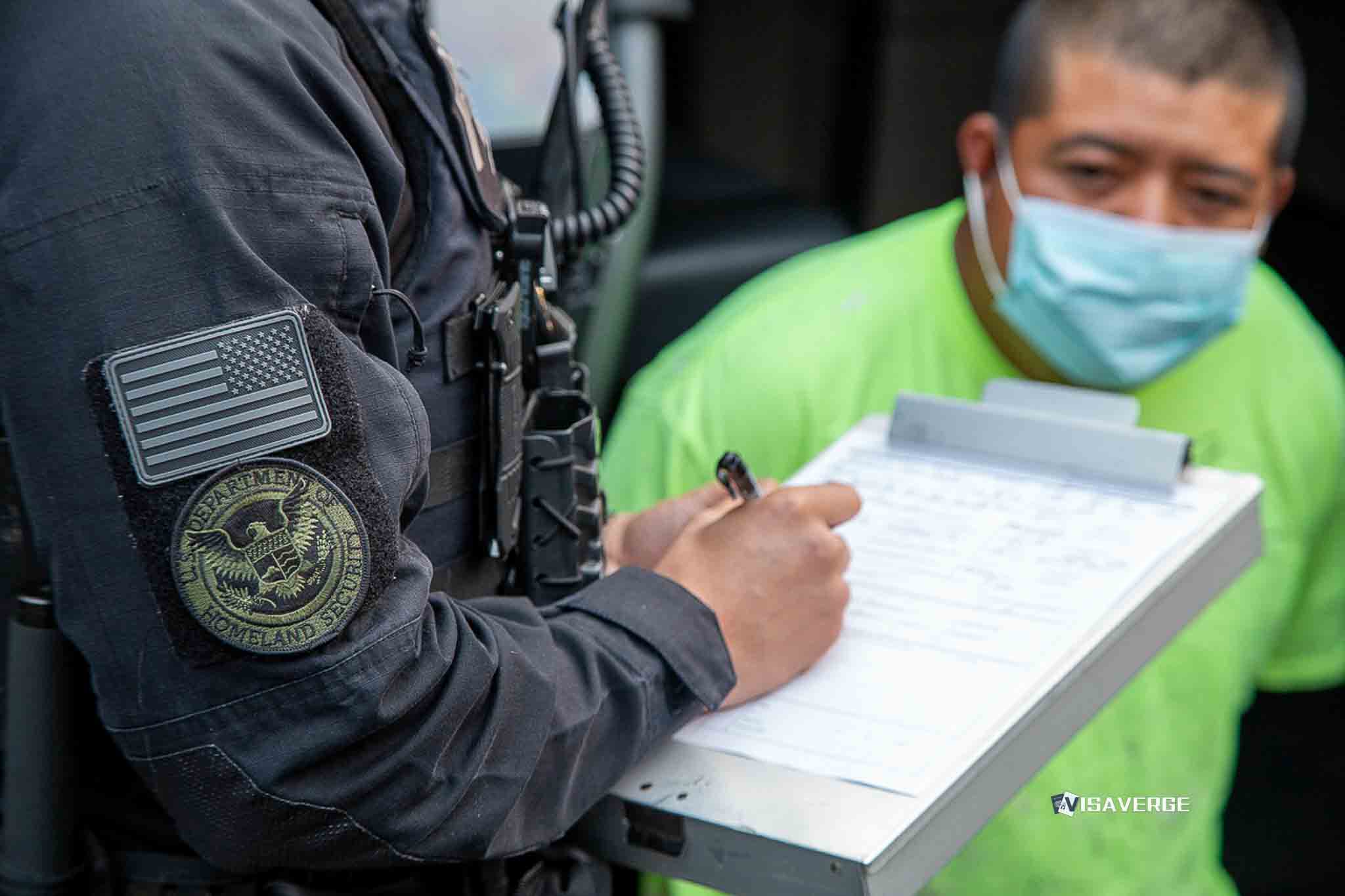Key Takeaways
- Guatemala will increase deportation flights from the U.S. by 40%, including non-Guatemalan migrants, announced February 5, 2025.
- Accepting non-Guatemalan deportees adds logistical complexity, requiring coordination for repatriation, resources for processing, and expanded immigration systems.
- The policy enhances U.S.-Guatemala collaboration, influencing regional migration dynamics and bilateral ties, with significant legal, humanitarian, and financial implications.
Guatemala 🇬🇹 has revealed a new decision to increase deportation flights from the United States, with a sharp focus on including non-Guatemalan migrants in these efforts. Announced on February 5, 2025, the Central American nation pledged to raise the number of flights by 40%. This represents a major turn in its migration policy and highlights Guatemala’s willingness to handle not just its own deported nationals but also migrants from other nations expelled from the United States.
This announcement places Guatemala at the frontlines of regional migration challenges, with a growing role in managing the return and relocation of migrants. Typically, countries only accept their own deported citizens, but Guatemala’s decision to process non-Guatemalan migrants reflects an expansion of responsibilities. This move is expected to have effects far beyond its borders, creating outcomes for migrants, governments, and broader regional relations.

What is Behind the 40% Increase?
The decision to increase deportation flights by 40% suggests renewed commitments and changes in how Guatemala handles migration. However, no detailed baseline figures on the current number of flights have been provided, making it tricky to estimate the actual scale of this increase in absolute terms. What is clear, however, is that Guatemala will now need substantial resources, coordination, and planning to meet this expansion.
This increase points to Guatemala’s extensive collaboration with the United States. The two nations have historically worked together to address migration issues, and the timing of this announcement may reflect broader behind-the-scenes talks or regional agreements. For the United States, this move signals that Guatemala remains an important partner in slowing irregular migration to the US border. For Guatemala, such cooperation with Washington could mean closer bilateral ties that may involve discussions on aid, trade, and security partnerships.
Handling Non-Guatemalan Migrants: A New Challenge
One of the most notable aspects of this policy is Guatemala’s agreement to accept deportation flights with non-Guatemalan migrants. Traditionally, deportation flights return nationals of the country receiving them, but this approach marks a shift. By accepting non-Guatemalan individuals, Guatemala is essentially agreeing to take an intermediary role, as many of these individuals may only be passing through Guatemala on their way to their actual home countries.
Managing these non-Guatemalan migrants comes with added layers of complexity. First, there’s the question of where these individuals will go after arriving in Guatemala. Those who are not from Guatemala might need to be sent on to their home countries. This will require coordination with the respective governments, and the logistical challenges could be significant. Second, the resources needed to screen, shelter, and process the arriving individuals will likely place additional pressure on Guatemala’s immigration infrastructure.
The steps Guatemala takes to manage this influx will be critical, as they stand to either streamline or overwhelm existing processes. For migrants, especially non-Guatemalans, the journey could turn more uncertain. They might face extended wait periods, unclear repatriation plans, and worry about what comes next.
Migrants and Detention: What Changes?
For Guatemalan nationals being deported, the increase in flights could have some practical benefits. A higher frequency of flights might reduce the amount of time these individuals spend waiting in detention facilities in the United States before their deportation. This is significant, as shorter detention durations could provide some relief, especially where individuals face overcrowded or stressful conditions. However, for non-Guatemalan migrants, deportation becomes far more logistically complicated. Their future likely depends on Guatemala’s ability to put systems in place for their repatriation to their home countries.
For those seeking asylum in the United States or pursuing legal relief, frequent deportation flights could also present challenges. A faster deportation process may interfere with their ability to file appeals or make final claims for legal stay in the US. How these policies are carried out, specifically regarding timeframes and safeguards, will play a decisive role in ensuring legal rights are protected.
Managing the Increased Flows: Logistical and Financial Burdens
Any plan to increase deportation flights by 40% involves operational hurdles. Guatemala will need to expand or reinforce its current systems to handle the reception and processing of incoming flights and migrants. This may mean building or upgrading facilities to house deportees temporarily, training additional personnel for newcomer screening, and ensuring adequate support services. For example, non-Guatemalan migrants might need temporary shelters while awaiting onward transportation to their own countries.
Costs for this expanded operation are likely to rise sharply. Deportation flights, by their nature, are costly undertakings, and handling greater numbers is unlikely to come cheap. Who will foot the bill? Neither the United States nor Guatemala has provided detailed information on how the expenses will be shared. However, it is expected that both governments will bear some of the costs: the US to carry out the flights, and Guatemala to process the deportees. Beyond direct costs, staffing, infrastructure development, and safety measures will require additional funding.
Regional and Bilateral Implications
Guatemala’s move to embrace a more active role in migration management could have ripple effects for its position in both Central America and North America. By taking on deportation flights with non-Guatemalan migrants, the country may be signaling its intent to serve as a hub or processing center for migration issues in the region. This could lead to expanded relations with neighboring countries, particularly if Guatemala collaborates with nations from which the non-Guatemalan deportees originate.
Meanwhile, the cooperation with the United States on this matter aligns the countries more closely on migration goals. Washington benefits by having Guatemala share responsibility for processing migrants, particularly by accepting individuals who are not its own citizens. Such cooperation could be part of broader discussions on trade, aid, and other aspects of bilateral relations. In return, Guatemala may aim to negotiate concessions or benefits from the US in other areas as it takes on additional responsibilities.
Humanitarian Concerns and International Law
From a humanitarian perspective, these increased deportation flights raise important concerns about the treatment of migrants. Deportation, especially when it involves international travel, can be stressful and even traumatic for the individuals involved. Ensuring that migrants are treated with dignity during this process will need to remain a priority. Immediate needs like food, medical support, and legal consultations are crucial for both Guatemalan and non-Guatemalan migrants alike.
Equally important is adherence to international law, including agreements that protect the rights of refugees and migrants. Guatemala’s acceptance of non-Guatemalan deportees is unique and could test the limits of existing frameworks. It will require careful planning to ensure that individuals’ rights are upheld and that they are not subjected to further harm upon arrival or during transit.
Migration Patterns in the Region
The impact of this policy on regional migration patterns could be profound. Word of an accelerated deportation policy might serve as a deterrent for some migrants considering irregular routes to the United States. If migrants perceive that their chances of being deported quickly and efficiently have increased, they may rethink their plans. Conversely, this could push some to use increasingly risky routes—or rely more heavily on smugglers—to evade detection.
The broader effects on migration flows will depend on how thoroughly the policy is enforced and how potential migrants respond. Over time, observers will likely study whether such tough measures reduce overall numbers of irregular crossings or simply shift the flow of people to new border points.
A Balancing Act Ahead
Guatemala’s 40% increase in deportation flights marks a turning point in how the nation manages migration. As reported by VisaVerge.com, this step will challenge Guatemala’s capacity to manage the logistical, legal, and humanitarian aspects of a growing number of deportees, especially non-Guatemalan migrants. For migrants themselves, the policy represents a mix of new uncertainties and evolving systems that could reshape their journeys.
The months ahead will likely bring more clarity on how Guatemala plans to operationalize these changes. For now, the success of this ambitious effort will hinge on careful coordination and a focus on respecting the rights of individuals during what is often a difficult and uncertain process. For those interested in further details regarding deportation processes and rights, the U.S. Citizenship and Immigration Services (USCIS) website offers an authoritative resource at USCIS.gov.
Learn Today
Deportation Flights → Government-organized flights used to return individuals to their home countries after being removed from another country.
Non-Guatemalan Migrants → Migrants who are not citizens of Guatemala, often passing through the country en route to another destination.
Repatriation → The process of returning individuals to their home country, often following deportation or displacement.
Immigration Infrastructure → Systems, facilities, and resources needed to manage the flow and processing of migrants within a country.
Humanitarian Concerns → Ethical issues regarding the safety, dignity, and rights of individuals, especially during stressful situations like deportation.
This Article in a Nutshell
Guatemala’s bold move to increase deportation flights by 40%—including non-Guatemalan migrants—signals a dramatic shift in migration policy. This decision strengthens ties with the U.S., poses logistical challenges, and amplifies regional responsibilities. As deportation processes evolve, Guatemala’s expanded role may redefine migration dynamics, sparking humanitarian and political debates far beyond its borders.
— By VisaVerge.com
Read more:
• Essential Visa Rules and Required Documents for Travel to Guatemala
• Essential Documents for Traveling to Guatemala: What to Carry
• Visa Guide: Key Information for Travel to Guatemala
• Rubio Strikes Deal for El Salvador to Take U.S. Deportees, Including Americans
• Trump Administration Deports Indian Migrants Using Military Flight to India








